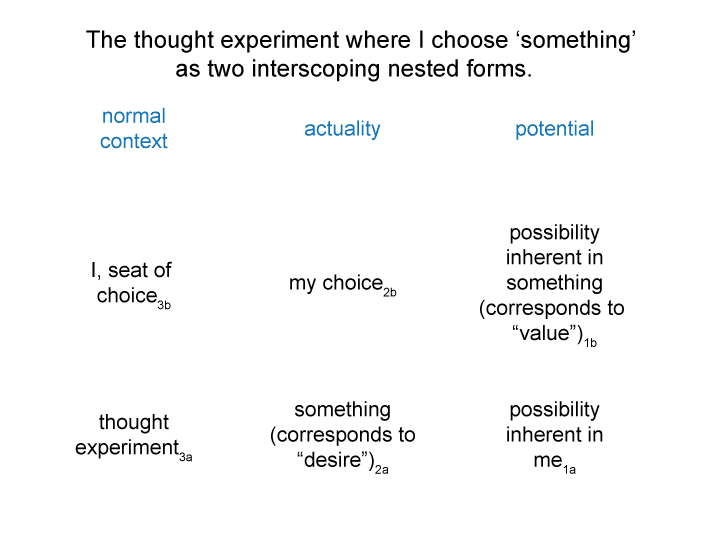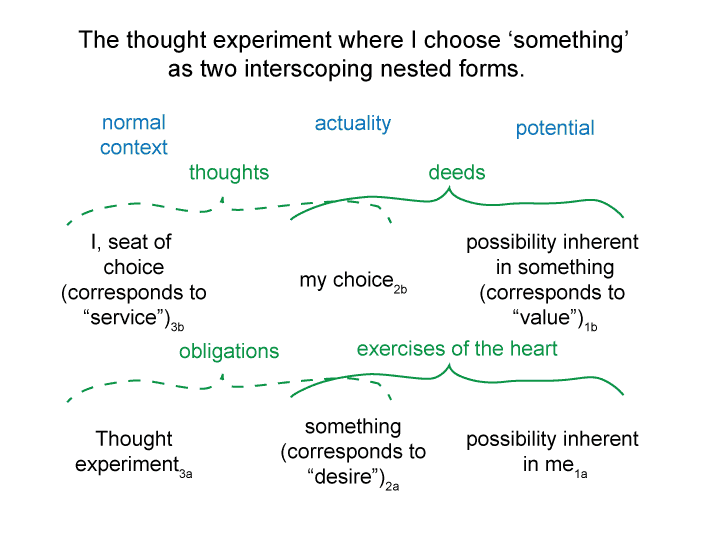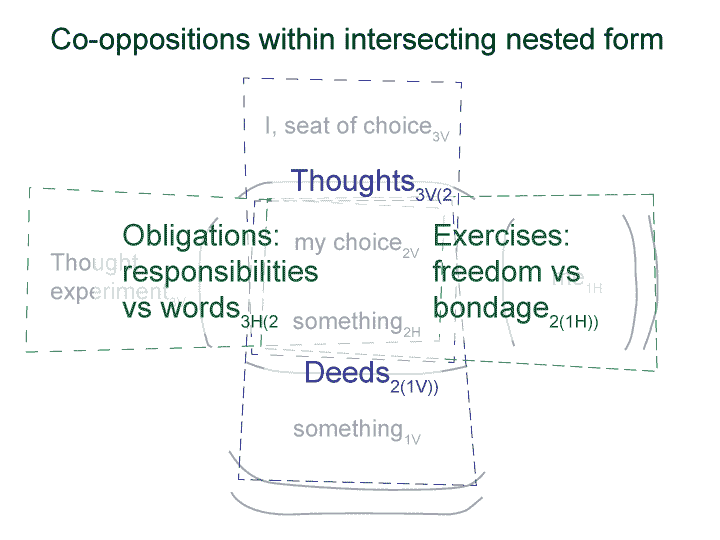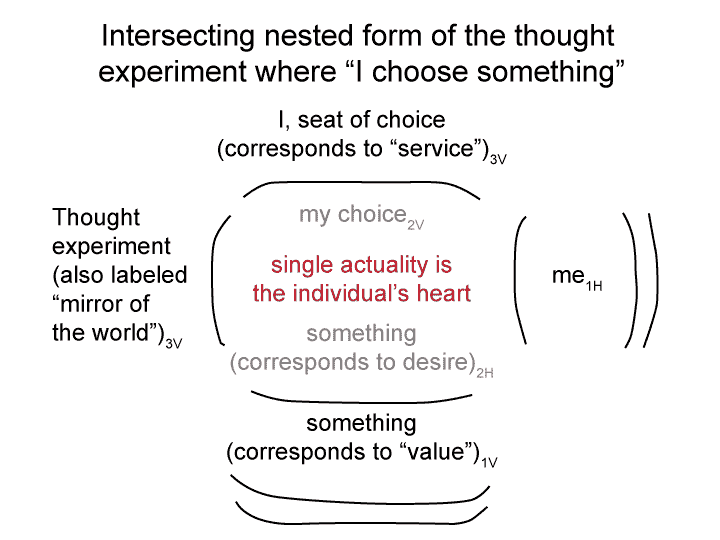Man and Sin by Piet Schoonenberg (1964) 2.3 FX
[The actualities of something2a and my choice2b are readily apparent to others.
My choice2b virtually emerges from and situates my desire2a.
So let me write these two nested forms out explicitly.
I, seat of choice3b( my choice2b( something corresponding to value1b))
Thought experiment3a( something corresponding to desire2a( me1a))]




